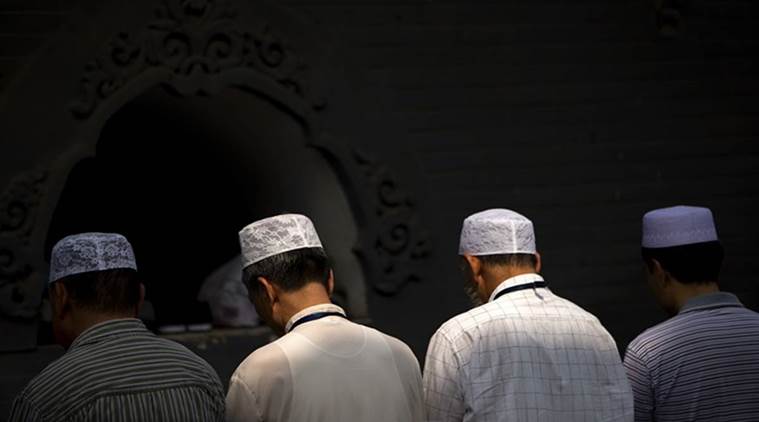
Pragya Thakur, an accused in the 2008 Malegaon blasts that killed six people, is contesting the general elections. As a Muslim, am I scared by this development? No.
Am I worried Maneka Gandhi won’t offer work to Muslims if they don’t vote for her? Far from it. I am actually amused by her ‘threat’. Am I offended when Yogi Adityanath compares “Ali” with “Bajrang Bali”? Yawn. I wish he could find better rhymes.
Am I angry with most TV anchors for their pro-Modi stance? No, I feel sorry for their inability to practise the courage that journalism requires.
I, the Indian Muslim, have come a long way from feeling a sense of fear, anger or resignation over the politics of hate that has been directed against me in the last five years.
Since it was elected to power in May 2014, the Modi-led government has left no stone unturned to corner Muslims — it has rewarded mob violence against members of the community, its leaders regularly spew anti-Muslim rhetoric, it has directed the media to further its divisive agenda, it has allowed the WhatsApp rumour factory to flourish, peddling the imagined fear of “Hindu khatre mein hai”.
The government’s attempts have met a degree of success, with Muslims often acting on fear, such as not carrying meat in trains, not driving or walking too close to a cow, not giving their children “too Muslim sounding” names.
But every emotion, including fear, has a threshold, beyond which it begins to wane, and eventually ceases to exist. Each adversity also carries an opportunity within. Around 2017, by when Mohsin Sheikh, Akhlaq, Junaid and Pehlu Khan were hacked to death, Muslims began channelising their fear, their alienation into a need to strengthen their community from within. From lamenting “what we fear”, Muslims began talking “what we must do”. These were not just living-room conversations. Muslims are on the field today, in a slum or in a village, working towards empowering their more vulnerable coreligionists.
A group of Muslims in my hometown, Lucknow, for example, has adopted a village in adjoining Sitapur district. There, they counsel parents to send their children to the local government school, they have launched adult education classes, hired Hindi and English teachers for the village madarsa, installed a clean drinking water facility, and formed self-help groups for women.
A Muslim woman, who is a PhD in management, has opened a school in her hometown, Balrampur, in eastern UP. Her team goes door to door to convince underprivileged Muslim families to send their children to school.
A group of Muslim women in Lucknow runs a kitchen that employs needy co-religionists so that the latter can spend on the uplift of their children.
These initiatives are self-financed, free from state or political intervention, and their common objective is to ensure long-term socio-economic empowerment of the community. I cite examples from my hometown, but I wouldn’t be surprised by similar initiatives elsewhere.
Economic laggardness has made Muslims vulnerable to political attacks and contributed to their unpopular (unfair as that may sound) image. Fixing their financial standing, Muslims feel, is the primary way to protect future generations from demonisation by the media, the state and political parties.
It’s not as if Muslims in the past did not undertake long-term community initiatives. In Lucknow, at least three privately-owned institutions — a university, a medical college and a law institute — were established by Muslims some decades ago. But a sense of urgency has set in over the last five years. Every Muslim I know wants to “do something” for the community — an emotion previously limited to a few visionaries. Ordinary Muslims are doing what they can — some are giving money, others their time or ideas — to local, grass roots projects within their reach. This attitude contrasts the earlier approach of ordinary Muslims, where consolidating as a community meant voting against the BJP during elections. Indeed, many Muslims have begun to see the opportunity in the adversity, the strength in the weakness, the hope in the fear.
This positivity is a surprising yet natural outcome of the politics of the time. The Modi government, by spreading its communal agenda over sporadic episodes of lynchings and hate speeches, cleverly applied the logic of diminishing outrage: With each successive lynching or hate speech, the public outrage diminished. Pratap Bhanu Mehta correctly wrote in his article “the silence be damned”( IE, June 27, 2017): “big riot would concentrate the mind, make a damning headline. A protracted riot in slow motion, individual victims across different states, simply makes this appear another daily routine. This makes opposing it harder; it makes holding onto the outrage nearly impossible.”
For the besieged community, the logic of diminishing fear applies. It is difficult, impossible to hold on to fear for too long. Many Muslims have exhausted their capacity to feel fear. Hope has taken over them, buttressed by efforts to improve overall condition.
Alienating Muslims, of course, has only been an appendage to the government’s larger project of developing a misplaced sense of Hindu pride – one that depends on the demonisation of Muslims. As an ordinary Muslim who has outgrown her fear, I hope the ordinary Hindu too has outgrown the anti-Muslim hate her conscience has been fed with in the last five years.
Like fear, hate can’t be held on to for too long. Both have an expiry date. My fear has expired. Has your hate too?
Akbar is a Lucknow-based entrepreneur and a former journalist with The Indian Express